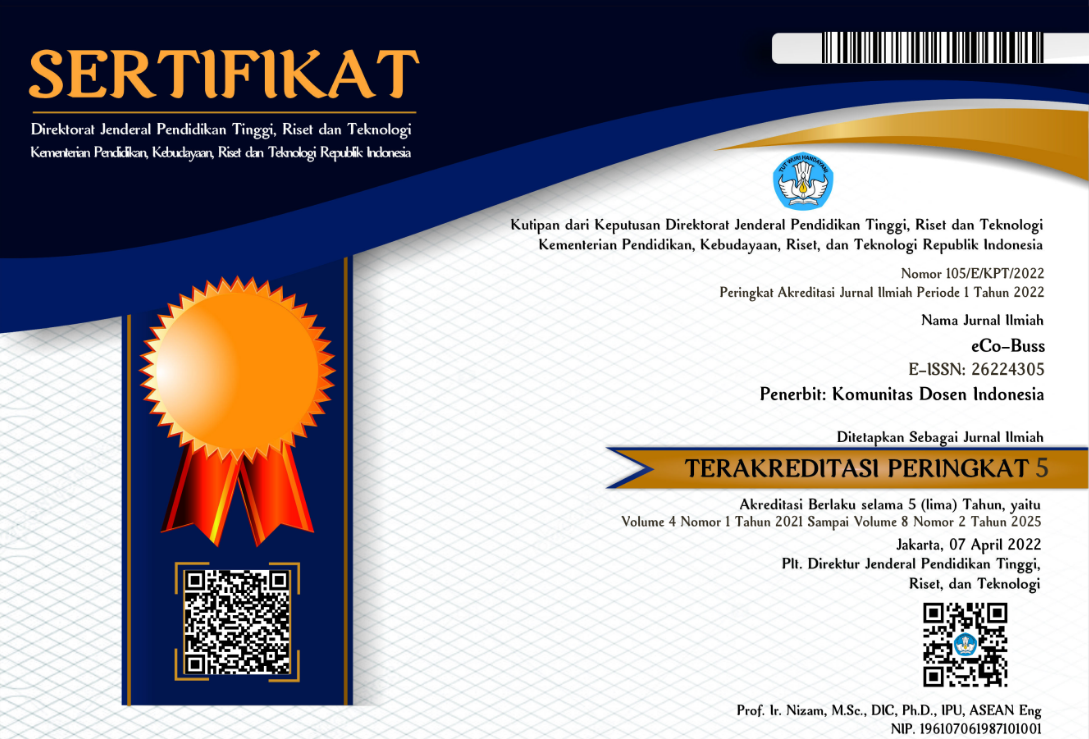The Influence of Earning Per Share, Turnover of Total Asset, Return on Equity and Debt Asset Ratio on LQ45 Index Share Price Period 2017 – 2021 listed on the Indonesia Stock Exchange
DOI:
https://doi.org/10.32877/eb.v6i1.807
Abstract
Due to the inflation factor, for that we need to invest in an investment asset, the current value of money will decrease. The investment instrument studied in this study were shares, using financial ratios to establish whether financial ratios are correlated with stock prices so that we can search for companies that can provide benefits in the form of capital gains, the object of this research uses ratios, among others: earnings per share, total asset turnover, return on equity, and debt/asset ratio. This research, using the help of the Eviews version 10 program as an application to process the data used, was carried out on companies listed on the lq45 index. In this study, the purposive sampling method was used as the sampling method. The number of samples used were 23 companies with research data carried out from 2017 to 2021, so 115 observation data were obtained. From the results of this study it is known that: (1) Earnings per share has a significant positive effect on share prices, this is evidenced with a significance of 0.0000 and a t value of 11.35574, so H1 is accepted; (2) The Turnover of Total Assets has a significant positive effect on stock prices, this is evidenced by the significance of 0.0156 and the value of the arithmetic t (2.456378) for which H2 is accepted; (3) Return on Equity has a significant positive effect on share prices, this is evidenced by a significance of 0.0010 and a t-count value of 3.368250, so H3 is accepted; (4) The debt to asset ratio has a significant negative effect on share prices, this is evidenced by a significant value of 0.1872 and a t-count value of (1.327267) so H4 is rejected; (5) Obtained Simultaneous Test Results Arithmetic results F of 33.50263 with probability 0.000000 can be concluded if simultaneously all variables have a significant influence on stock prices. The results of the regression analysis show the adjusted value (r^2) of 0.532807, which means that variations in Earnings per Share, Total Asset Turnover, Return on Equity, and Debt to Assets Ratio can explain the 53.28 % of changes in stock price. While the remaining 46.72% is explained by other variables not examined in this study.
Downloads
Downloads
Published
How to Cite
Issue
Section
License
Copyright (c) 2023 Marselia Purnama, Octavianti Purnama

This work is licensed under a Creative Commons Attribution-ShareAlike 4.0 International License.






 DOI :
DOI :
 Abstract views: 176
/
Abstract views: 176
/  PDF downloads: 174
PDF downloads: 174

